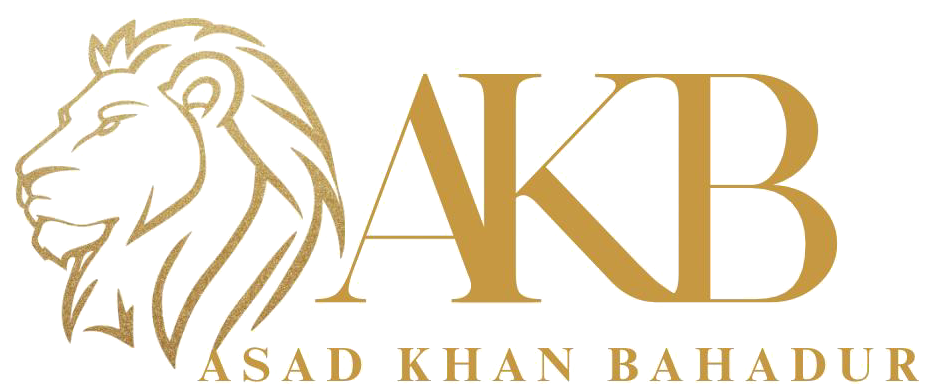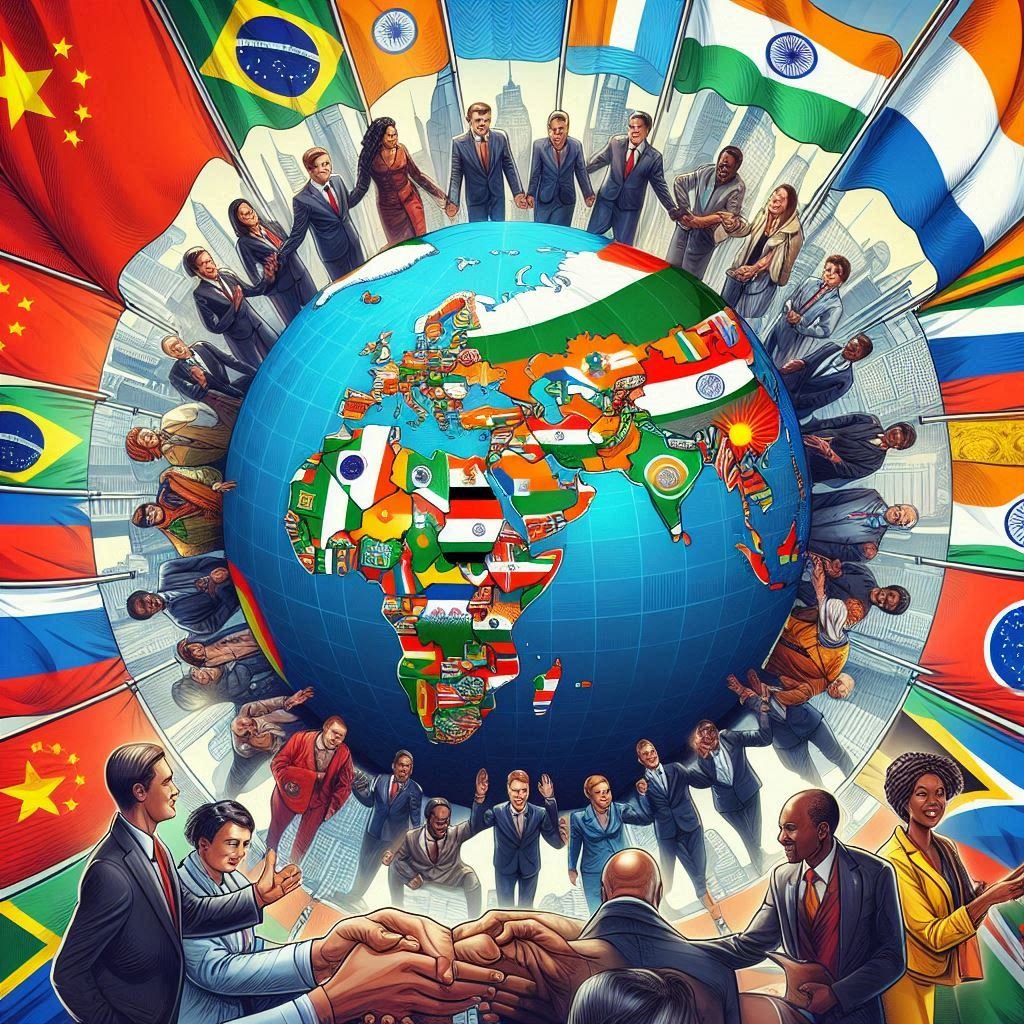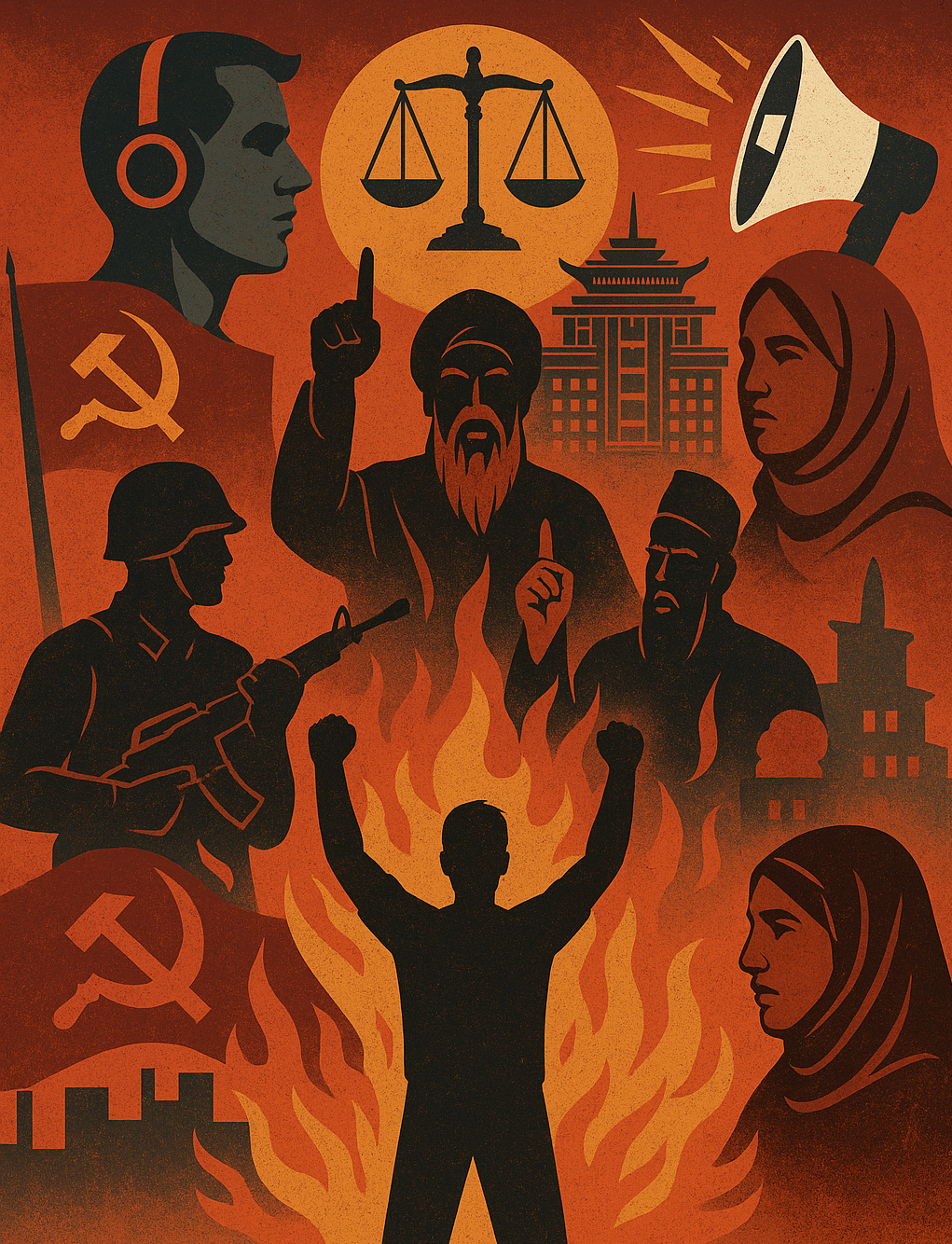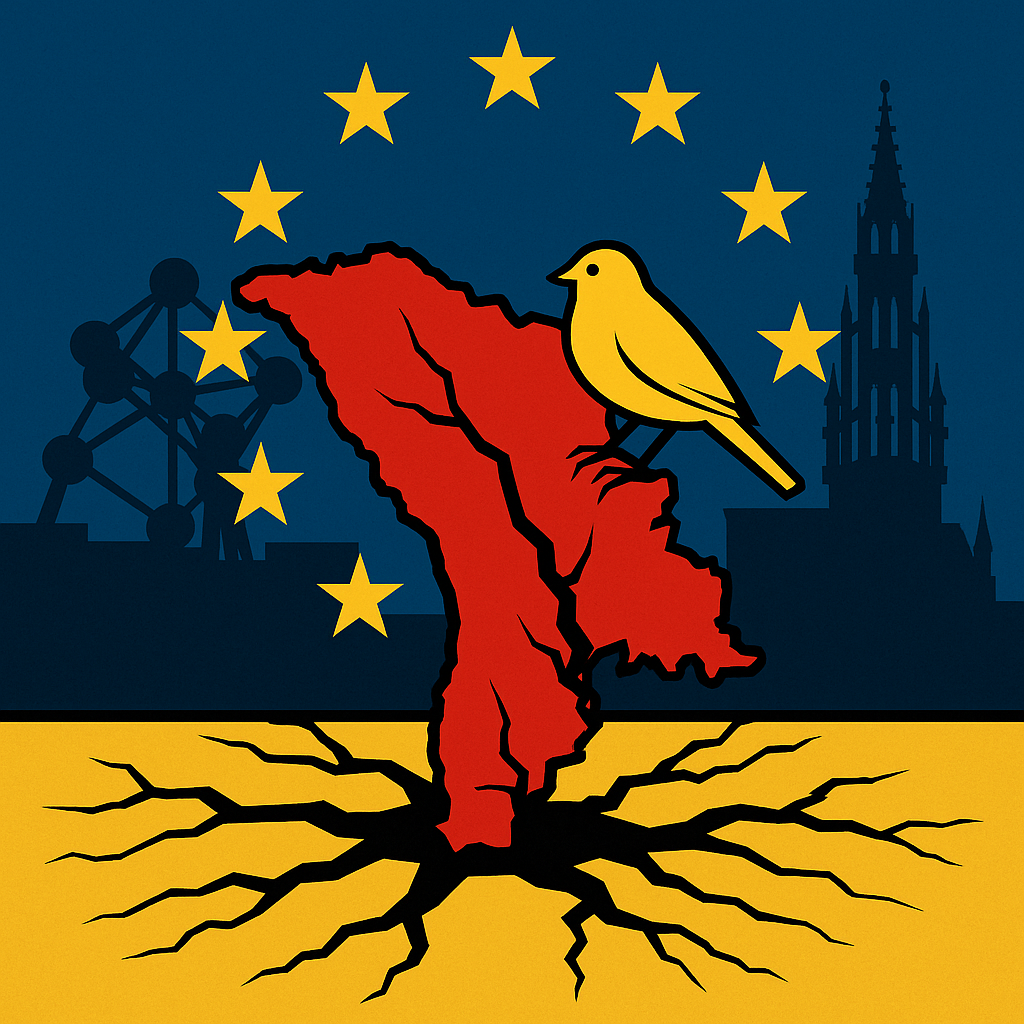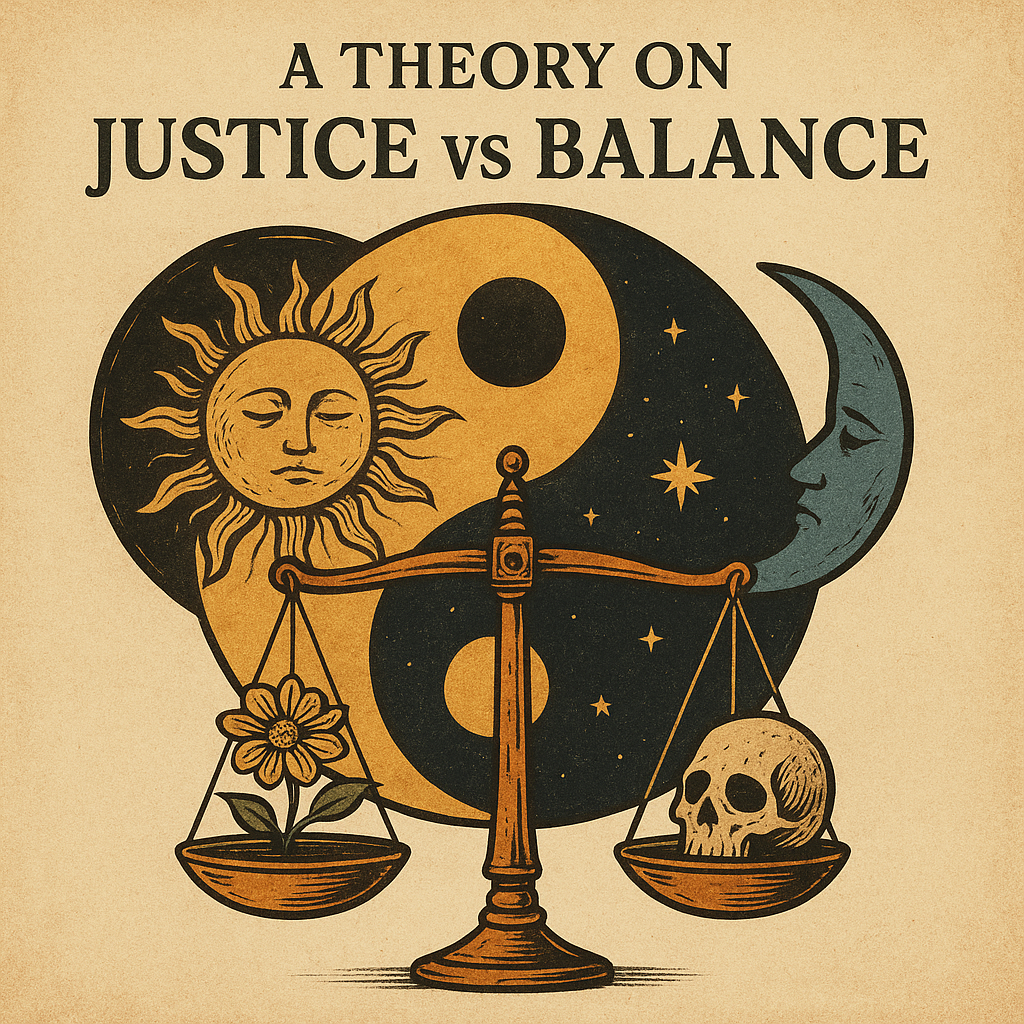
Is Balance the first law of creation? Is Justice a mere longing of the soul?
In a world where innocent lives are lost under falling bombs, where oppression silences the weak, and where the cries of the suffering often meet only the silence of the sky — one cannot help but ask:
“If God is good, why does evil still roam the earth?”
Look at Palestine. Look at the shattered cities, the wounded children, the broken dreams. Look at the countless places where darkness seems to reign unchecked.
Yet amid this heartbreak, a deeper, more unsettling truth whispers through creation itself:
“The world was never crafted to be pure. It was made to be complete”.
Without the shadows to sharpen your eyes, the light would blind you. Without sorrow to carve your soul, joy would be shallow.
Balance, not purity, is the secret woven into the bones of existence.
God’s creation is not a moral project, but a balancing act. Through conflict and harmony, suffering and joy, destruction and creation, the world sustains itself.
Violence, death, and evil are not anomalies — they are essential functions.
Justice is a human longing, but balance is the law of the cosmos.
1. The Creation as a Mechanism, Not a Playground of Miracles:
God created the universe by embedding it with deep, immutable principles — physical laws like gravity, biological processes like birth and death, and moral tensions like good and evil.
Once these mechanisms were set in place, the universe was left to unfold according to its own logic without direct divine intervention. God acts more like a grand architect or a cosmic clockmaker who, after designing the system perfectly, allows it to run autonomously.
This idea resonates with the philosophy of Deism, upheld by thinkers like Voltaire, Thomas Jefferson, and Spinoza.
Deism – God as the Clockmaker – In the 17th and 18th centuries, many Enlightenment philosophers proposed Deism, they believed in a divine setup but a hands-off divine attitude after creation:
- God created the universe but does not intervene in its operations.
- God set up the laws (physics, life, etc.) and then let them run like a self-sustaining machine.
- Miracles or divine interventions are not necessary because the system itself is perfect in its own logic.
The Qur’an Says:
Surah Al-Qamar (54:49) – (إِنَّا كُلَّ شَيْءٍ خَلَقْنَاهُ بِقَدَرٍ)
“Indeed, all things We created with a [precise] measure (qadar).”
Everything was created by exact measurement nothing random, no chaos. A precise “formula” governs all of existence.
Surah Al-Hijr (15:21) – (وَإِن مِّن شَيْءٍ إِلَّا عِندَنَا خَزَائِنُهُ وَمَا نُنَزِّلُهُ إِلَّا بِقَدَرٍ مَّعْلُومٍ)
“And there is not a thing but that with Us are its treasuries, and We do not send it down except according to a known measure.”
Every event, every resource, even every blessing, is sent down according to a precise system and not through random miracles.
Surah Al-Furqan (25:2) – (خَلَقَ كُلَّ شَيْءٍ فَقَدَّرَهُ تَقْدِيرًا)
“He created everything and determined it with [precise] determination.”
God creates and determines — meaning, He doesn’t need to keep adjusting. Things follow the paths He set at creation.
These ayats reflect that the universe operates on a divinely instituted formula, with minimal need for intervention.
2. Balance, Not Moral Justice, as the Fundamental Principle:
The driving force of existence is not fairness but balance. Just as day follows night and life follows death, so too does goodness coexist with evil, and creation with destruction.
Heraclitus (500 BC), the ancient Greek philosopher, argued that conflict and opposition are the engines of reality.
Life is a dynamic balance of opposites — like fire and water, war and peace, life and death. Without tension and conflict, existence would collapse.
He famously said:
“War is the father of all things.” “The way up and the way down are one and the same.”
Taoism, (ancient Chinese philosophy, Laozi, Zhuangzi), through the doctrine of Yin and Yang, teaches that good and evil, life and death, are partners maintaining cosmic harmony.
- The universe is a flowing balance of opposites: Yin (darkness, passivity) and Yang (light, activity).
- Good and evil, life and death, gain and loss — are not enemies, but partners maintaining cosmic harmony.
- Trying to “fix” the world forcibly often creates more imbalance.
The Qur’an, too, emphasizes balance:
Surah Ar-Rahman (55:7-9) – (وَالسَّمَاءَ رَفَعَهَا وَوَضَعَ الْمِيزَانَ)
“And the heaven He raised and imposed the balance…”
The entire cosmic structure is based on balance (mizan). Humans are warned not to upset the natural balance — another clear hint that the world itself runs on a built-in system.
Surah Al-Baqarah (2:251) – (وَلَوْلَا دَفْعُ اللَّهِ النَّاسَ بَعْضَهُم بِبَعْضٍ لَّفَسَدَتِ الْأَرْضُ)
“And if Allah did not check one set of people by means of another, the earth would indeed be full of corruption…”
God uses conflict between people as a way to preserve balance on earth.Good vs evil, forces opposing each other — are part of maintaining order, not a mistake.
Thus, the universe thrives not on the elimination of opposites, but on their continual interaction.
3. Good and Evil as Natural Forces:
Human concepts of “good” and “evil” are expressions of deeper cosmic dualities.
Carl Jung spoke of the “shadow” within each individual, an inseparable part of the psyche comprising repressed evil, cruelty, and aggression. True maturity, he believed, comes not from eradicating the shadow but from integrating and balancing it.
- Every person — and humanity itself — has a “shadow” side: repressed evil, cruelty, aggression.
- We can’t “eradicate” the shadow; we can only integrate it, accept it, and balance it.
- Civilization depends on acknowledging this darkness rather than denying it.
Fyodor Dostoevsky (1821–1881) wrestled with the injustice of a world where innocent suffering occurs.
In The Brothers Karamazov, Ivan Karamazov rejects a world built on the suffering of children, while Alyosha proposes humble acceptance of life’s mystery.
“I return my ticket [to Heaven].” However, Dostoevsky doesn’t stop there. He hints that faith is accepting the mystery, even if the world looks broken.
Dostoevsky agreed that the world is not just — innocent people suffer and evil thrives.
However, there’s a hidden mystical balance or higher wisdom that humans can’t fully see.
Accepting the world’s “injustice” humbly, and responding with love and forgiveness, is a moral act — but it won’t fix the world.
Thus, Dostoevsky points to a balance through spiritual acceptance, not an earthly balance of “good winning over evil.”
The Qur’an affirms the dual potential within every soul:
Surah Al-Shams (91:7-10) – (وَنَفْسٍ وَمَا سَوَّاهَا * فَأَلْهَمَهَا فُجُورَهَا وَتَقْوَاهَا)
“And [by] the soul and He who proportioned it, and inspired it with its wickedness and its righteousness…”
God placed both good and evil potential inside human beings. Evil is not an accident — it was designed into the system.
4. Death and Birth as Continuous Exchanges:
Life is a rhythm of death and birth, sustaining dynamism across time. Nietzsche observed that chaos and struggle are the crucibles from which greatness emerges:
“One must still have chaos within oneself to give birth to a dancing star.”
The Qur’an articulates this pairing explicitly:
Surah Al-Mulk (67:2) – (الَّذِي خَلَقَ الْمَوْتَ وَالْحَيَاةَ لِيَبْلُوَكُمْ أَيُّكُمْ أَحْسَنُ عَمَلًا وَهُوَ الْعَزِيزُ الْغَفُورُ)
“He who created death and life to test you [as to] which of you is best in deed…”
Death and life are deliberately paired — both necessary parts of existence. This world is a testing ground, not a reward system.
Every death is counterbalanced by a birth, ensuring the unbroken continuity of existence.
5. No Cosmic Reward or Punishment:
In this framework, earthly justice is neither expected nor necessary. Suffering, conflict, and death are part of a larger equilibrium, not mistakes needing correction.
Nietzsche rejected the idea of divine moral order, suggesting that life simply is, beyond good and evil:
“What does not kill me makes me stronger.”
Nietzsche believed good and evil were human constructs — the universe itself doesn’t recognize “good” and “bad” — it just is.
The human task is to affirm life as it is, embracing both its beauty and cruelty without expecting it to be just.
The world is a dynamic force, not a morality play. Suffering, conflict, violence — all necessary parts of existence.
The Qur’an reinforces that life is a test, not a reward:
Surah Al-Hadid (57:22-23) – (مَا أَصَابَ مِن مُّصِيبَةٍ فِي الْأَرْضِ وَلَا فِي أَنفُسِكُمْ إِلَّا فِي كِتَابٍ مِّن قَبْلِ أَن نَّبْرَأَهَا)
“No disaster strikes upon the earth or among yourselves except that it is in a register before We bring it into being…”
All events — good and bad — are pre-measured and recorded. Balance and destiny are already part of the mechanism.
Thus, trials are part of existence’s intricate balance, not punishments for individual failure.
6. Implications for Humanity:
Humans must realize that while striving for justice is noble, ultimate justice belongs to the afterlife, not this world.
The Gnostics (and Eastern Christian Mysticism) who saw the world as a broken but beautiful mirror of divine reality:
- This world is imperfect by design.
- God’s “fullness” is elsewhere; this world is like a broken mirror — beautiful, but fractured.
- The goal is not to “fix” the world but to understand its tragic beauty and seek higher wisdom.
The Qur’an assures that nothing happens outside divine knowledge:
Surah Al-An’am (6:59) – (وَمَا تَسْقُطُ مِن وَرَقَةٍ إِلَّا يَعْلَمُهَا)
“And not a leaf falls but that He knows it…” “And no grain is there within the darknesses of the earth and no moist or dry [thing] but that it is [written] in a clear record.”
- God’s knowledge is total, but events unfold according to a written system (the clear record = اللوح المحفوظ, the Preserved Tablet).
- He knows everything, but lets the system operate.
From the sages of ancient philosophy to the timeless verses of the Qur’an, a single truth emerges: the world is not primarily just; it is beautifully and terrifyingly balanced.
Good and evil, light and dark, joy and sorrow — all are stitched together into the grand tapestry of existence, unfolding without constant intervention, running on the perfect formula God ordained.
Balance is the first law of creation. Justice is the longing of the soul.

